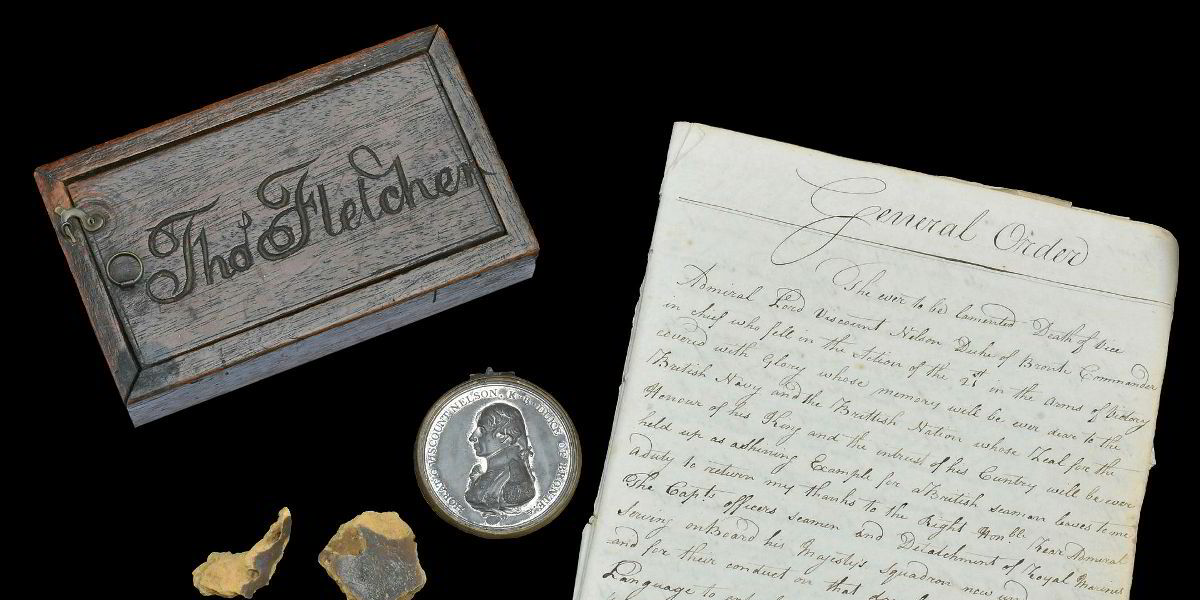Able seaman Thomas Fletcher was either too busy during the 1805 Battle of Trafalgar to eat his rations, or he was saving something for later.
Whatever the case, the seafarer managed to bring home not only an insight into the historic battle, along with the events and comment surrounding it, but one of the ships’ biscuits given out to him as a gunner on the HMS Defence.
Fast forward 213 years and the biscuit, Fletcher’s Trafalgar Medal, his notes and a small shaving box are due to go under the hammer this week at London auction house Dix Noonan Webb.
The guide price for the lot is £2,000 to £2,600 ($2,713 to $3,527), with the slightly nibbled — or is it broken? — snack looking a tad worse for wear.
But, then again, the biscuit, which Fletcher’s family first sold with his accompanying possessions in 2005, has claimed the oldest title, topping that of a similar piece of “hard tack” from 1852, which is on display in the Maritime Museum at Kronborg Castle in Elsinore, Denmark.
The auctioneer includes some stomach-churning notes on ships’ biscuits — an important part of a sailor's diet before the introduction of canned foods — which were famously crawling with insects.
He quotes midshipman Jeffrey Raigersfield in describing some as so light that “when you tapped it upon the table, it fell almost into dust, and thereout numerous insects, called weevils, crawled; they were bitter to the taste, and a sure indication that the biscuit had lost its nutritious particles; if, instead of these weevils, large white maggots with black heads made their appearance, then the biscuit was considered to be only in its first state of decay; these maggots were fat and cold to the taste, but not bitter.”
Maybe this is why Fletcher, and its other owners, were able to resist eating such a tempting treat.



